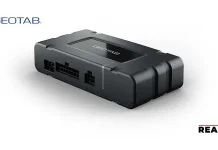Lineage Cell Therapeutics, Inc., a clinical-stage biotechnology company developing allogeneic cell therapies for unmet medical needs, announced the clearance, by the U.S. Food and Drug Administration (FDA), of its Investigational New Drug amendment (INDa) for OPC1, an investigational allogeneic oligodendrocyte progenitor cell transplant for the treatment of spinal cord injury (SCI). Pursuant to the INDa, Lineage has initiated activities to open its first clinical site in the DOSED (Delivery of Oligodendrocyte Progenitor Cells for Spinal Cord Injury: Evaluation of a Novel Device) study to evaluate the safety and utility of a novel spinal cord delivery device in subacute and chronic SCI patients. Initial site opening is expected to occur in the second quarter of 2024, following customary trial preparations and submission in the first quarter of a grant application to the California Institute for Regenerative Medicine (CIRM) for potential partial financial support of the DOSED clinical study.
“Lineage’s oligodendrocyte cell transplants are designed to replace or support cells that are absent or dysfunctional due to traumatic injury, with the goal of helping to improve the quality of life and restore or augment functional activity to persons suffering from traumatic cervical or thoracic spinal cord injuries. The clearance of our INDa and the initiation of OPC1 clinical testing under our sponsorship represents a significant milestone for this program, and reflects our commitment to developing modern cell therapy product candidates,” stated Brian M. Culley, Lineage CEO. “We are excited by the opportunity to build upon the promising results achieved with OPC1 in previous trials, and to continue to seek improvements in how our therapy is prepared and administered.
The DOSED clinical study in particular is intended to evaluate the safety and performance of a new delivery device, which is compatible with our forthcoming immediate-use formulation, and which does not require cessation of patient ventilation during administration. We believe these improvements can lead to a safer surgical procedure for surgeons and patients. This study also will mark the first time that OPC1 is administered to chronic SCI patients, and we will be collecting efficacy assessments in addition to the primary outcome measures of safety. Completing this regulatory step also enables us to proceed with our planned CLIN-2 grant application to CIRM to request external financial support for the OPC1 program.”
OPC1 has been tested in two clinical trials to date: a five patient Phase 1 clinical safety trial in acute thoracic SCI, where all subjects have been followed for at least 10 years; as well as a 25 patient Phase 1/2a multicenter dose-escalation clinical trial in subacute cervical SCI, where all subjects were evaluated for at least two years, one of the first cell therapy clinical trials supported by the California Institute for Regenerative Medicine under Proposition 71.
SOURCE : BusinessWire



